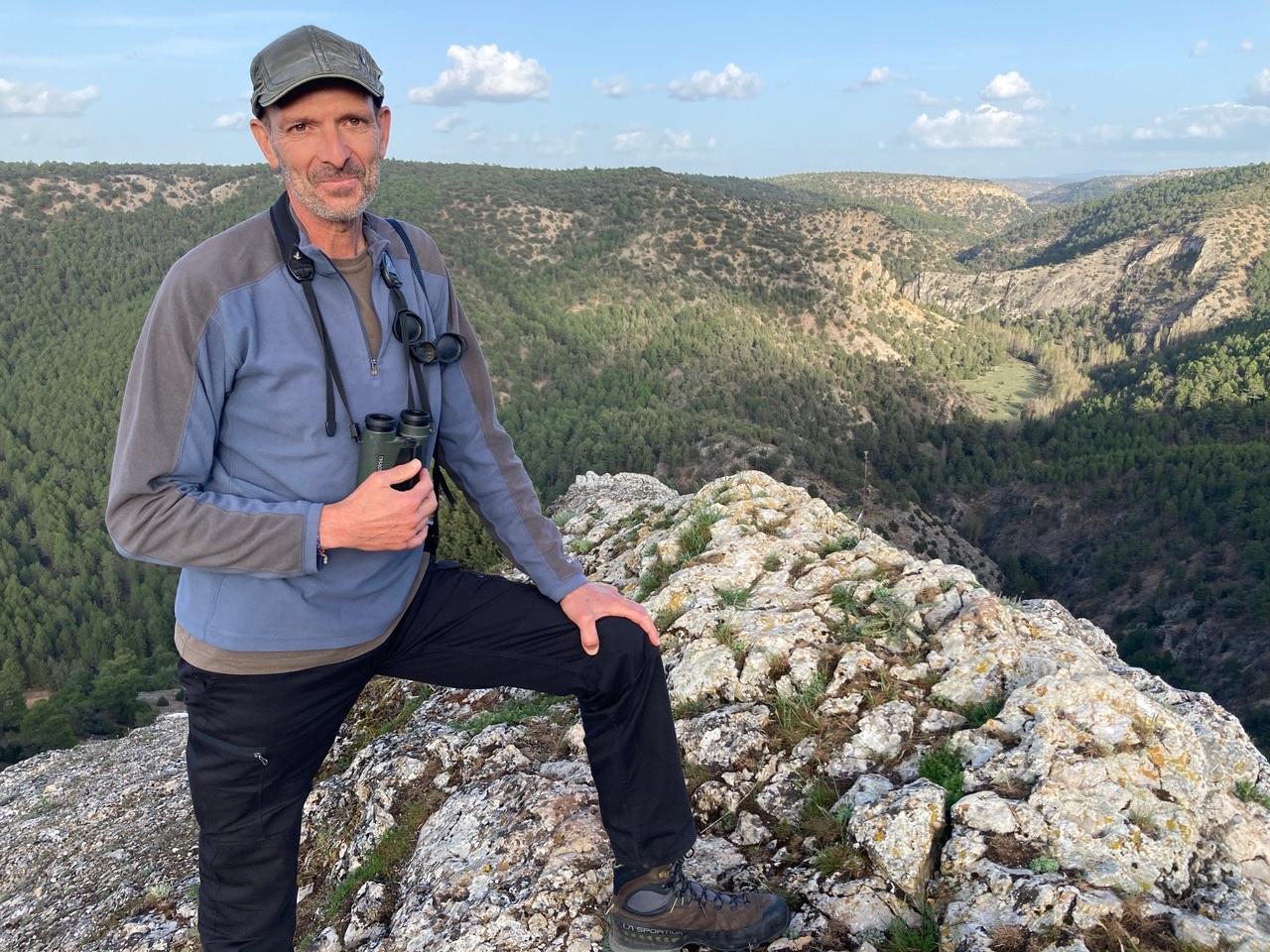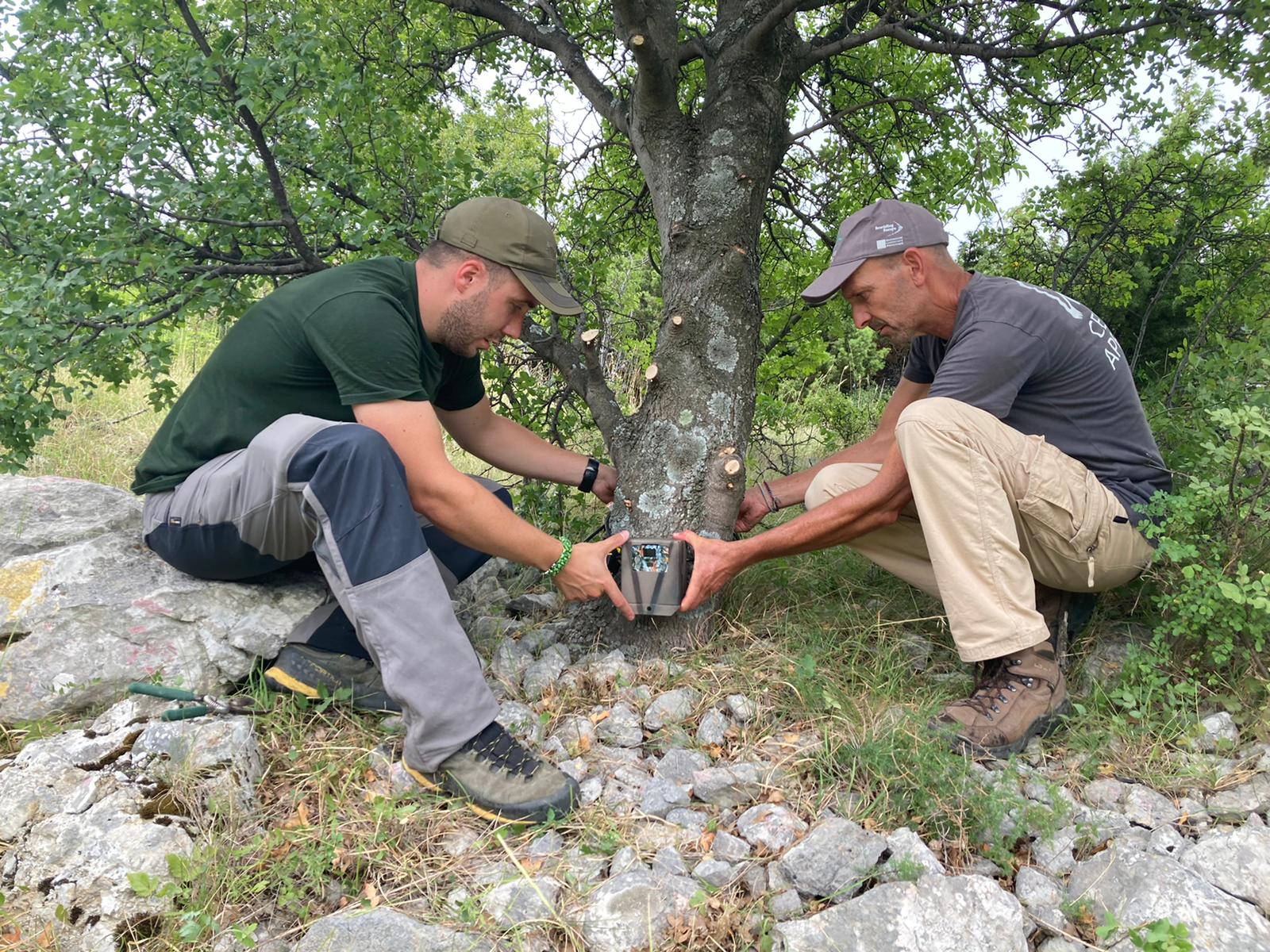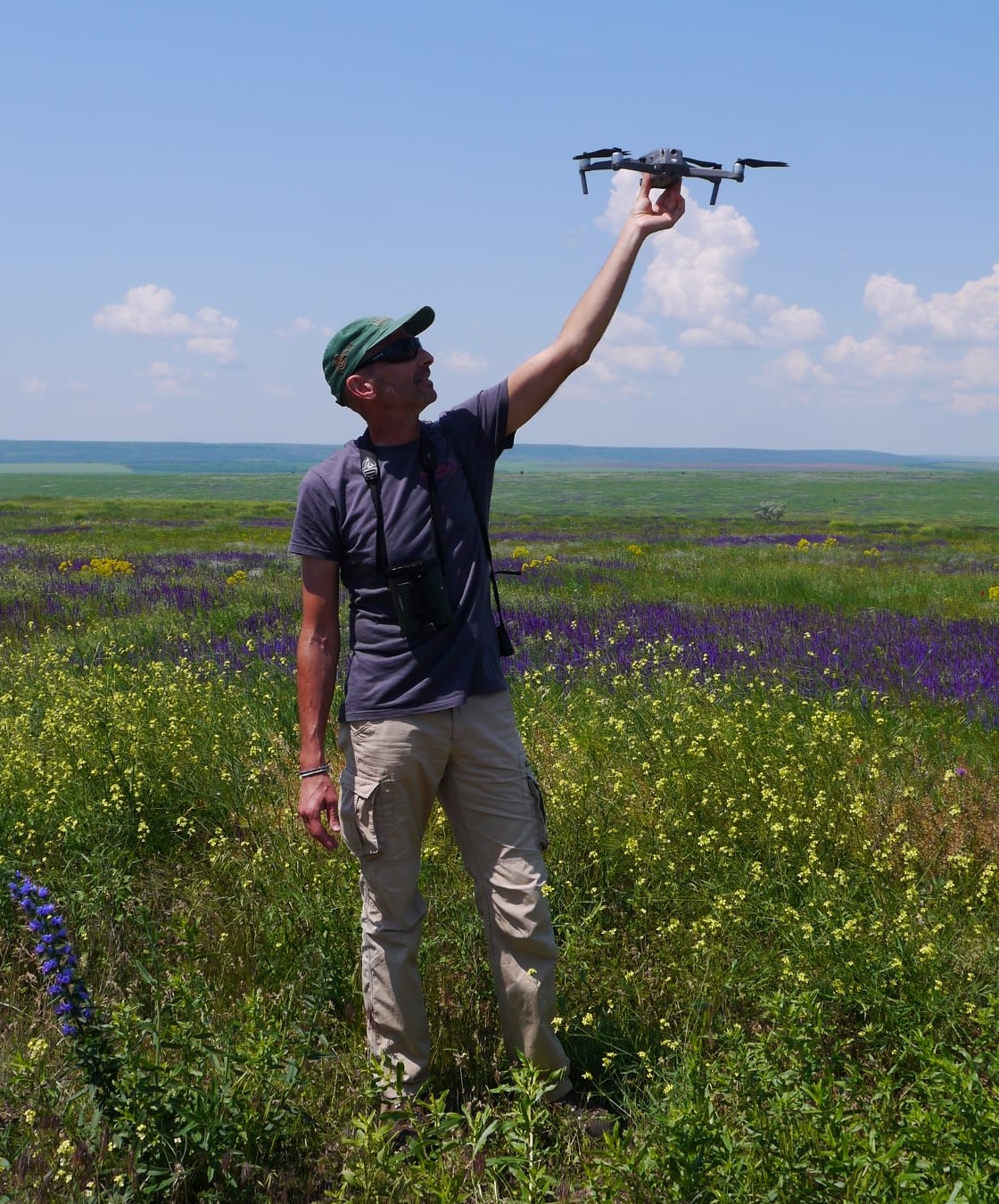Head of Landscapes at Rewilding Europe, Deli Saavedra has the important task of monitoring the progress of rewilding efforts in different areas currently underway across Europe. In an interview, he talks to us about the biggest challenges of his job, the future of this collective and unified project and his plans for the future.

What do you think sets rewilding apart from other nature conservation approaches?
Rewilding is a more relaxed approach to nature conservation, where we do not prescribe how nature should behave, but where we give nature resilience, through geographical space (the bigger the better) and putting back the lost pieces on the ecosystems. At the same time, rewilding does not have enough with what is already protected, but it aims to go beyond, restoring nature at large scale.
As Head of Landscapes, what have been your greatest challenges and successes?
I think the greatest challenge has been to “keep the plates spinning”, which means ensuring enough financing to allow the different rewilding landscapes to work full speed and to increase operations. It is difficult to find long-term sources of finance for rewilding, therefore often when we have secured it for one landscape (one spinning plate), soon another one can be ending the source of funding. At the same time, it is encouraging to have increased the number of rewilding landscapes of the Rewilding Europe network from five in 2012 to ten in 2022.
The new European Wildlife Comeback Fund hopes to facilitate reintroductions and translocations of fauna – tell a little about this new initiative.
There is abundant scientific research showing we need to increase wildlife populations, especially of those species (so-called keystone species) that have a disproportionate effect on ecosystems, removing biomass (large herbivores), shaping trophic chains (large carnivores) or removing dead animals (scavengers). Reintroductions require feasibility studies, administrative permits, and money, and often practitioners find themselves in a “catch 22” situation: it is difficult to obtain permits if the money is not secured, but it is also difficult to assure donors that permits will be obtained on time once the money is granted. The European Wildlife Comeback Fund (EWCF) is a specific fund set up to support financially the reintroduction projects that are ready. That means with feasibility studies in place, agreements from main stakeholders established and permits from authorities obtained. We hope to dramatically increase wildlife reintroductions across Europe, in a responsible way, and following IUCN guidelines.

A new rewilding area has recently been launched in the Iberian Highlands. Tell us a little about this new rewilding area, and what are the plans for the next few years.
Iberian Highlands is the name we have given to a huge region in Eastern Spain, comprising almost a million hectares from Castilla la Mancha and Aragon regions. Land abandonment is the main challenge (density of population is 2 inhabitants/km2) but we believe it is also the main opportunity to create one of the biggest natural areas in Europe, where landscape and abundant wildlife can add to the rich cultural heritage to build an exciting destination for ecotourism. The plan for the next three years includes the reintroduction of large herbivores (horses and tauros), the Cinereous vulture and the Iberian lynx. Old-growth forests will be protected through compensation systems and new forest management systems will be agreed to value better the use of timber and stop the logging of full trees for biomass. A network of operators and producers (similar to Rewilding Portugal’s Wild Côa Network) will be set up to support some economic activities of local communities.
You live in an area where wildfires used to be a larger problem, but that now has good measures in place to prevent them. Could some of these measures from Catalonia be applied in Portugal?
Well, catastrophic wildfires are a big problem in all the regions with a Mediterranean climate, and Catalonia is not an exception. I do not know well the policy and strategy behind fire prevention, and I can say that sadly rewilding is not included, but I can at least point to good prevention methods: the use of prescribed fire to decrease fuel in some areas, especially connecting big forest patches, and access restriction. Last summer, with an extreme fire risk, most nature parks were closed to the public, including on foot. It was a difficult measure, both politically and to be enforced, but the reality is that Catalonia was one of the regions in the Iberian Peninsula with the fewest hectares burnt.

How do you see the evolution of the rewilding area of the Greater Côa Valley, and what are the main opportunities and challenges for this area in the future?
The Greater Côa Valley is one of the big successes of Rewilding Europe and Rewilding Portugal. An area quite unknown in 2011 is presently one of the main examples of how rewilding can boost nature conservation and sustainable economic activities on a completely new way, bottom-up, working side by side with the local communities. Governments and public institutions (like the ICNF) should learn a lot from the wolf co-existence work carried out by Rewilding Portugal. At the same time, we are showing with scientific data that we need large herbivores in the landscape, to make it less prone to burning. Resilient landscapes and resilient communities, this is the future, and the Greater Côa Valley is one of the most brilliant European showcases.
From a personal perspective and reflecting on 2022, what would you like to see happen in 2023?
I would love to see real action for climate and biodiversity. Everyone says we are in emergency mode, but we keep living our life like nothing serious is happening. Our society has to deeply change, and rewilding is one of the paths to follow. Our mission is to build that path while walking, maybe even running, and we will need to be bold, energetic, and persistent in 2023 to make it happen. Cheer up!